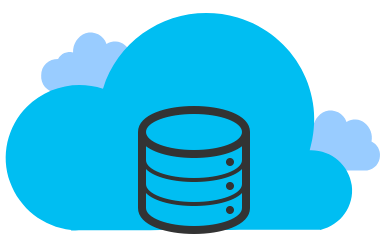
The increasing demand for cloud is opening new opportunities for many startups and cloud providers. Since there are many cloud providers in the market, we’ll help you choose one. Choosing the right cloud providers among three reputed organizations is a tough choice to make.
In 2006 Amazon’s AWS was one of the first companies to invest in the cloud technology they have a significant head start compared to Google and Microsoft. But one shouldn’t underestimate the services offered by Google cloud platform and Microsoft’s Azure.
Cloud Service Comparison between AWS vs. Azure vs. Google
All three of them provide quality services with high availability, durability, and security configurations, excellent performance, and great customer support. AWS, Microsoft, and Google provide various products based on user requirements over the internet. Some of the standard cloud services are :
- Storage
- Compute
- Security
- Database
- Networking
- Management and
- Development tools
Cloud Storage Comparison between AWS vs. Azure vs Google
Data storage is one of the primary services offered by cloud providers. Since AWS was one of the first cloud providers it’s storage solution is as old as AWS itself, but Google Cloud Platform and Microsoft Azure also provide reliable options. Based on the storage service provided, let’s look at the differences between them.
| Storage Services | AWS | Azure | |
| Object Storage Service for Use cases | Simple Storage Services(S3) |
Storage (Block Blob) | Cloud Storage |
| Archive Storage | S3 infrequent Access, Glacier, Data Archive | Storage(Cool), Storage(Archive) | Nearline, Coldline |
| Hybrid Storage | Storage Gateway | StorSimple | Egnyte Sync |
| Automatic Protection and Disaster Recovery | Disaster Recovery | Site Recovery | |
| Bulk Data Transfer Solutions | Import/Export Disk, Snowball Edge, Snow Mobile | Import/Export, Azure Data Box | Storage Transfer Service |
| Backup | Object storage, Cold Archive Storage, Storage Gateway | Backup |
Cloud Compute Comparison between AWS vs. Azure vs Google

Compute services offered by the cloud is one of the essential services that most of the organization needs for their business to grow. The cloud provides highly scalable servers which can scale from one to thousands of servers in just a few minutes depending on the load and the type of server used. Azure provides virtual hard disk (VHD), Google offers Google Compute Engine, and Amazon EC2 provides Virtual Machines that are pre-configured in the AMI.
Based on the services offered by AWS, Azure, and Google let’s look at the comparison table below.
| Services | AWS | Azure | |
| Deploy, Maintain and Manage Virtual Servers | Elastic Compute Cloud(EC2) | Virtual Machines, Virtual Machine Scale Set | Compute Engine |
| Platform-as-a-service | Elastic Beanstalk | Cloud Services | Google App Engine |
| Management support for Kubernetes Containers | ECS, EC2 Container Service, EKS | Container Service, Container Service(AKS) | Kubernetes Engine |
| Virtual Private Sectors made Easily | Lightsail | Virtual Machine Image | – |
| Docker Container Registry | EC2 Container Registry(ECR) | Container Registry | Container Registry |
| Docker Container Deployment | – | Container Service | Container Engine |
| Integrate Systems and Run Backend Logic processes | Lambda | Function, Event Grid, Web jobs | Cloud Functions |
| Automatic Scale Instances | Auto-scaling | Azure app service, Scale capability(PaaS), Autoscaling, Virtual Machine Scale Sets | Instance Groups |
| Instance Families | 7 | 4 | 4 |
| Instance Types | 38 | 33 | 18 |
Cloud Security Comparison between AWS vs. Azure vs Google
Since security is one of the key business models for all the cloud providers, it is an important consideration for both the customers and the service providers. AWS provides many security customizable configurations for their VPC in all the availability zones. Google Cloud Platform offers advanced security and firewall via FortiGate Next-Generation Firewall, and Microsoft offers Fortinet for optimized protection for data and applications.
Let’s look at the below table to understand the key security features of AWS, Azure, and Google.
| Security Service | AWS | Azure | |
| Authentication and Authorization | Identity and Access Management(IAM) | Active Directory, Active Directory Premium | Cloud IAM, Cloud Identity-aware proxy |
| Protection with Data Encryption | Key Management Service | Storage service Encryption | – |
| Firewall | Web Application Firewall | Application Gateway | – |
| Identity Management | Cognito | Active Directory B2C | – |
| Cloud Services with Protection | Shield | DDoS Protection Service | – |
Cloud Database Comparison between AWS vs. Azure vs Google

AWS, Azure, and Google provide all kinds of database services such as relational database, big data, data warehousing, NoSQL, etc. One can utilize cloud’s high availability and speed for database services that can be processed in much less time compared to an on-premises data center. The difference in database services offered by individual cloud providers is as follows.
| Database Services | AWS | Azure | |
| Caching | ElastiCache | RedisCache | Cloud CDN |
| Block Storage | EBS | Page Blobs | Persistent Disks |
| Object Storage | S3 | Blobs and Files | Google Cloud Storage Block |
| NoSQL(Indexed) | DynamoDB | Cosmos DB | Cloud Datastore, Cloud Bigtable |
| NoSQL(Key value) | DynamoDB, SimpleDB | Table storage | Cloud Datastore |
| Database Migration | Database Migration Service | Database migration Service | – |
| Manage Data Warehouse | Redshift | SQL Data Warehouse | – |
| Manage Relational Database-as-a-Service | RDS | SQL Database, Database for MySQL, Database for PostgreSQL | Google Cloud SQL, Cloud Spanner |
Cloud Networking Comparison between AWS vs. Azure vs Google
One cannot argue between AWS and Azure since both provide solutions to bring your on-premises infrastructure to the public cloud or Hybrid Cloud. Users can group Virtual Machines (VM) into an isolated network in the cloud using Amazon’s VPC and Azure’s VNET. Using VPC and VNET, one can create subnets, route tables, define network topology, have different public and private IP ranges, and network gateways while each Google Compute Engine instance belongs to a single network, which establishes the gateway and address range for all the servers connected to it.
| Networking and CDN | AWS | Azure | |
| Loading Balancing Configuration | Elastic load balancing | Load Balancer Application Gateway | Cloud Load Balancing |
| Global Content Delivery Networks | CloudFront | Content Delivery Network | Cloud Interconnect |
| Manage DNS name and records | Route 53 | Traffick Manager Azure DNS | Google Cloud DNS |
| Cross- premise Connectivity | API Gateway | VPN Gateway | Cloud VPN |
| Virtual Networking | Virtual Private Cloud | Virtual Network | Subnet |
| Dedicated, Private network connection | direct connect | Express Route | – |
Cloud Management Comparison between AWS vs. Azure vs Google
All three cloud providers offer a wide range of management service and monitoring services. Using the monitoring service, you can check the performance, utilization, workloads, health, and visibility of the applications in the cloud and implement scaling as needed by looking at the data in the dashboard.
| Management and Monitoring | AWS | Azure | |
| Administration | Application, Discovery service, System Manager, Personal Health dashboard | Log analytics, operations management suite, Resource health, Storage Explorer | cloud Console |
| Billing | Billing API | Billing API | Cloud Billing API |
| Cloud Advisor Capabilities | Cloudwatch, X-ray, Management | Portal, Monitor, Application Insights | Stackdriver Monitoring, cloudShell, Debugger, Trace, error Reporting |
| DevOps Deployment Orchestration | OpsWorks(Chef-based), Cloud Formation | Automation, Resource Manager, VM Extensions | Cloud Deployment Manager |
| Cloud Resource Management and monitoring | Trusted Advisor | Advisor | Cloud Platform Security |
Cloud Development Tools Comparison between AWS vs. Azure vs. Google
Development tools can be used to build, deploy, debug, diagnose, and manage the scalable applications in the cloud. Some of the development tools offered by the AWS, Azure, and Google is listed below :
| Development tools | AWS | Azure | |
| Media Transcoding | Elastic Transcoding | Media Services | – |
| App Testing | Device Farm | DevTest Labs(backend) | Cloud Test Lab |
| Devops | Codebuild | Visual Studio Team Services | – |
| Developer Tools | Developer Tools | Developer Tools | – |
| Git Repositories | AWS Source Repositories | Azure Source Repositories | Cloud Source Repositories |
Conclusion
Comparing all the three cloud providers one can come to a conclusion about which Cloud offers better service according to the business needs. We recommend a detailed analysis to be done from your end before making a choice. Whatever cloud you choose, you will be happy by taking its advantage to build your cloud environment.
About InterPole
InterPole was established in 1996 and engages in web hosting, email, and management of IT infrastructure. InterPole pioneered with Virtual Private Servers in 2004 and Cloud Hosting in 2008. Over the years, InterPole has worked with over 6200 mid-sized businesses and startups, and have assisted them in their journey towards the adoption of modern technologies through the Internet. InterPole is a Standard Consulting Partner of Amazon AWS and Microsoft Azure. With this partnership, provides Managed AWS service and maintains a team of engineers who are trained and certified for the specific cloud platforms. These benefits companies in defining their cloud strategy and making a well-planned journey, reliably and cost-effectively.

